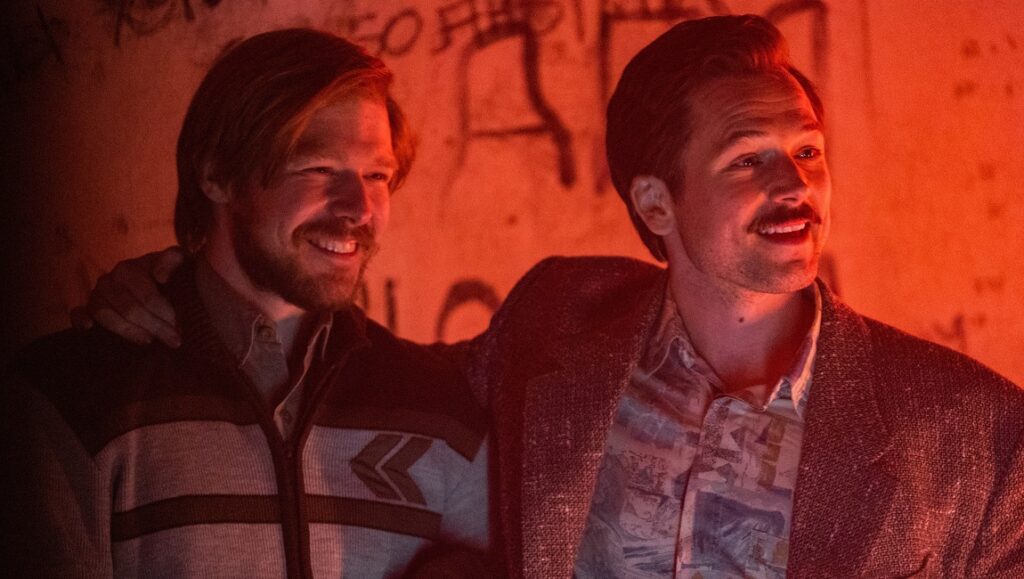Narrative video games have been an appealing cash-grab for years now, but the recent phenomenon of The Last of Us has made game adaptations hot again. This critic’s personal favorite: Super Mario Bros. (1993), a bizarre bastard made with gleeful absurdity by Annabel Jankel and Rocky Morton (the team behind Max Headroom: 20 Minutes Into the Future, perhaps the best made-for-television movie ever produced). It vexed fans because it had very little to do with the game, but the relish with which the directors conjure ridiculous images and borderline surreal scenarios offers the kind of playbook of video game adaptation from which filmmakers should take their inspiration. That, and a good cast — God Bob Hoskins as the plumber (with a crotchety weariness that belies that game character’s ebullience) and Dennis Hopper as the draconian reptilian, boasting a legion of tiny-headed goons — makes all the difference.
Tetris, written by Noah Pink and directed by Jon S. Baird, is not an adaptation of a narrative game, and since no studio would finance an avant-garde, Michael Snow-esque take on translating the game, we get something here like The Founder, but replete with some Scorsese sprinklings, a little Baz glitz, and all of it dressed in animated 8-bit graphics like garland. Even as a traditional historical drama, however, a film like this could have been an inspired idea if someone formally daring, some consummate craftsman with sui generis vision, had made it — just imagine Gaspar Noe’s version of the variegated puzzle. At the very least, the film would have benefited from someone capable of incisive insight into the making and marketing of the game, interrogating the relationship between the creative and the corporate.
The Tetris we’ve been given offers none of that. Still, the final product could have been worse, and that’s often as good as these kinds of studio productions tend to be. Baird’s film is a competent, based-on-a-true-story bit of entertainment, but let’s indulge what could have been: The people who had the idea of making a movie out of a game about rearranging falling shapes really missed a golden opportunity — Dr. Mario! Picture it: instead of Tetris, we could have had a portly Italian with a bulbous head and robust mustache dishing out a panoply of pills that need to disappear somewhere. That could have been truly fun.
The backstory of Tetris the game — from an embryonic entertainment flickering on a soviet programmer’s boxy old screen to worldwide sensation making certain people, though not the Soviet programer, a lot of money — offers a fun narrative to work from and is delivered with breezy playfulness that offers diverting enough viewing. And Taron Egerton, as the hopeful dealer who sees the potential of the game and bets everything, proves once again that he is an enjoyably lively screen presence. But there’s only so much about knavish businessmen getting fat off of someone else’s creation — the dude who invented the game got $10,000, minus fees — that you can watch before going numb. This is a familiar story, dressed in its slightly particular details. The story of the business background of the game is far less interesting than the story of its creation, and Baird’s film feels like it’s aiming for a snazzy Moneyball-type thing. That sense of apathy that plagues the film’s conception is what will ultimately register most with viewers — there’s simply nothing to be excited about here.
You can currently stream Jon S. Baird’s Tetris on Apple TV+.
Published as part of InRO Weekly — Volume 1, Issue 13.


Comments are closed.